In the process of national digital transformation, the development of the 2025 Cyber Security Law is an urgent, strategic and long-term requirement to protect digital sovereignty , ensure the safety of national information systems, and promote the development of Vietnam's cybersecurity industry.
Recently, the Ministry of Public Security - the agency in charge of drafting the Cyber Security Law project, has proactively and urgently completed the dossier of the Cyber Security Law project 2025 to submit to the National Assembly. The draft Cyber Security Law was built on the basis of merging two current laws: the Cyber Security Law 2018 and the Network Information Security Law 2015.
This merger ensures that the functions and tasks of ministries and branches do not change, that no new policies arise, and that the spirit of Resolution 18 of the Central Committee on clear assignment and decentralization is properly implemented, avoiding overlap in management.
A big step forward in building a legal system to protect cyberspace
One of the outstanding new points of the draft Law on Cyber Security 2025 is the addition of regulations on encouraging state agencies, organizations and enterprises to use domestic cybersecurity products, enhancing Vietnam's capacity for cybersecurity autonomy.
Enhancing cybersecurity self-reliance is an urgent requirement, not only to protect the safety of the country's critical infrastructure but also to maintain social stability and sustainable economic development.
It can be affirmed that strengthening self-reliance in cybersecurity is an indispensable requirement for Vietnam in protecting national information security, ensuring the rights of people and businesses, and maintaining national sovereignty in cyberspace.
This is also an important factor helping Vietnam develop sustainably in the digital economy, ensuring security and social stability in the context of the world increasingly dependent on digital technology.
However, improving cybersecurity self-sufficiency in Vietnam is a long-term process and requires close coordination between the Government, businesses, educational institutions and the community. Only when these solutions are implemented synchronously and effectively, can Vietnam ensure a safe and secure cyberspace for its people and the country.

Sharing at the seminar "Cybersecurity Law 2025: Promoting technological autonomy" organized by the National Cybersecurity Association (NCA), Lieutenant Colonel Nguyen Dinh Do Thi - Deputy Head of the Cybersecurity Department (Department of Cybersecurity and High-Tech Crime Prevention, Ministry of Public Security) said that currently, dependence on foreign technology is one of three groups of risks and direct challenges, affecting national security and social order and safety.
In order to improve the capacity for autonomy in network security, the State encourages and creates conditions for agencies, organizations and individuals to improve their capacity for autonomy in network security and improve the ability to produce, test, evaluate and inspect digital devices, network services and network applications.
Associate Professor, Dr. Nguyen Ai Viet - Director of the Institute of Technology and New Intelligence Education also commented that in the long term, autonomous products are extremely important.
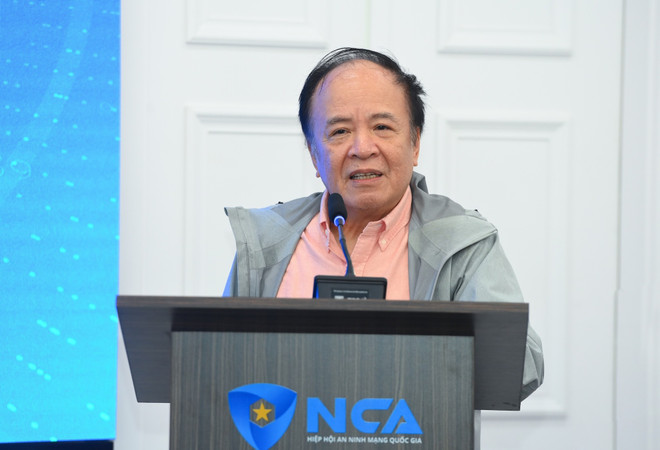
In addition to increasing budgets and training to raise cybersecurity awareness for leaders of large corporations, companies, organizations with sensitive data, and especially banks, there should be a policy requiring organizations to have cybersecurity policies that include cybersecurity architecture.
In this architecture, any solution must have a domestic defense layer. Although the domestic defense layer is not strong in all aspects compared to the water defense layer at present, it will overcome the weaknesses of the foreign defense layer. The Ministry of Public Security should be assigned to build the Cyber Security Architecture Framework.
Towards a modern and solid legal corridor
From the perspective of a technology enterprise in the field of cybersecurity, Mr. Nguyen Minh Duc - Chairman of the Cyber Security Services Club, National Cyber Security Association, CEO of CyRadar Information Security Joint Stock Company, commented that the Cyber Security Law 2025 is not only a tool to protect digital sovereignty but also an important economic driving force for Vietnamese cybersecurity enterprises.
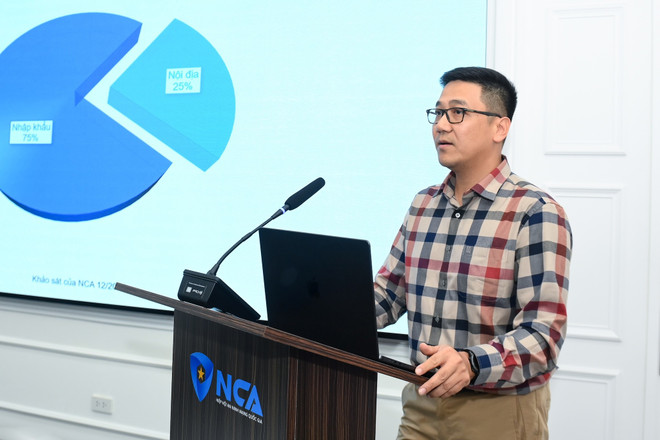
First of all, right in the State Policy section, the Law encourages agencies, organizations and individuals to prioritize the use of cybersecurity products and services developed in Vietnam, thereby establishing the cybersecurity industry as a strategic field and market orientation for domestic enterprises.
At the same time, the Law stipulates that the budget for cybersecurity protection at state agencies and political organizations must reach at least 10% of the total budget of information technology projects and programs, contributing to the formation of a stable market and promoting safe digital transformation.
In addition, the Law also creates conditions to encourage research and development (R&D), enhancing autonomy from product and solution manufacturing to service provision, aiming to build a stronger, more creative and autonomous Vietnamese cybersecurity community.
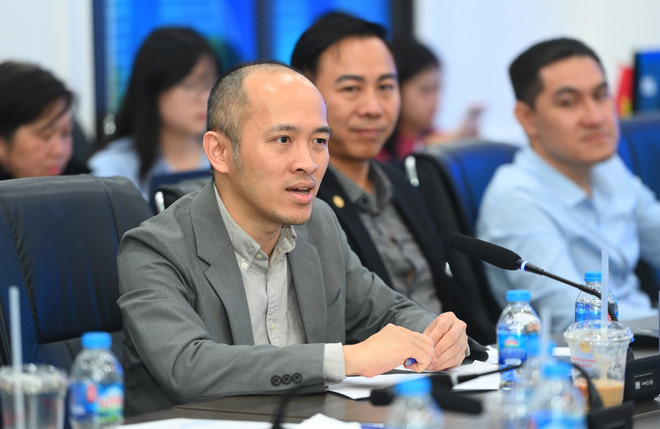
According to Mr. Vu Ngoc Son - Head of the Department of Research, Consulting, Technology Development and International Cooperation, National Cyber Security Association, the draft Law on Cyber Security 2025 is a big step forward for Vietnam in building a legal system to protect cyberspace - a space that increasingly has a profound impact on all aspects of economic and social life.
Mr. Son believes that when passed, the new Law will create a modern, unified, flexible legal framework, consistent with international practices and trends; protect digital sovereignty, enhance defense capacity, ensure data security and digital sovereignty against cyber threats.
At the same time, the newly passed Law on Cyber Security will promote reduced dependence on foreign technology, promote national cybersecurity technology autonomy and pave the way for the Vietnamese cybersecurity ecosystem and industry to develop more strongly./.
Source: https://www.vietnamplus.vn/luat-an-ninh-mang-2025-tao-cu-hich-thuc-day-cong-nghiep-an-ninh-mang-viet-post1077757.vnp






![[Photo] The Standing Committee of the Organizing Subcommittee serving the 14th National Party Congress meets on information and propaganda work for the Congress.](https://vphoto.vietnam.vn/thumb/1200x675/vietnam/resource/IMAGE/2025/11/19/1763531906775_tieu-ban-phuc-vu-dh-19-11-9302-614-jpg.webp)





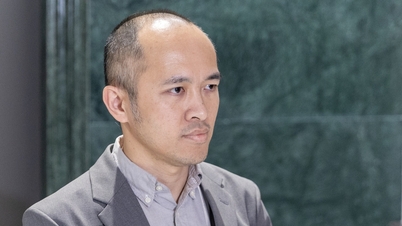

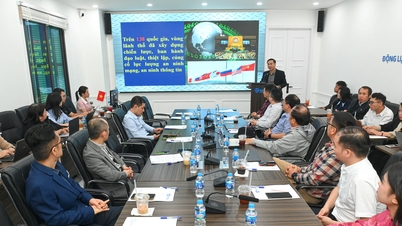

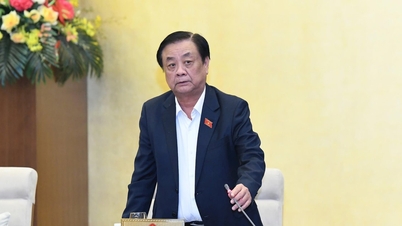






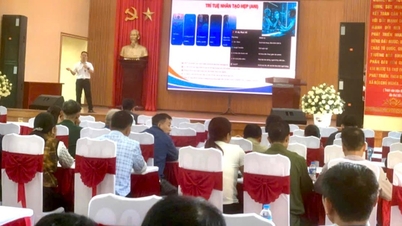










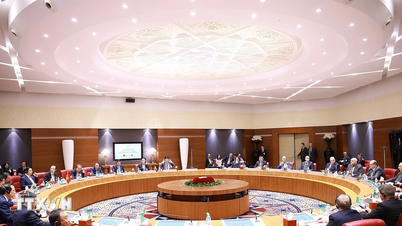




![[Photo] Prime Minister Pham Minh Chinh and his wife meet the Vietnamese community in Algeria](https://vphoto.vietnam.vn/thumb/1200x675/vietnam/resource/IMAGE/2025/11/19/1763510299099_1763510015166-jpg.webp)
![[Photo] General Secretary To Lam receives Slovakian Deputy Prime Minister and Minister of Defense Robert Kalinak](https://vphoto.vietnam.vn/thumb/1200x675/vietnam/resource/IMAGE/2025/11/18/1763467091441_a1-bnd-8261-6981-jpg.webp)









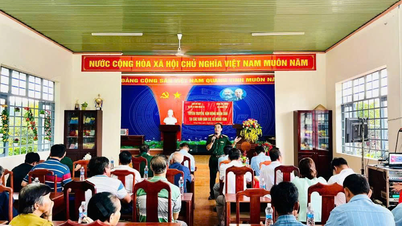
































































Comment (0)